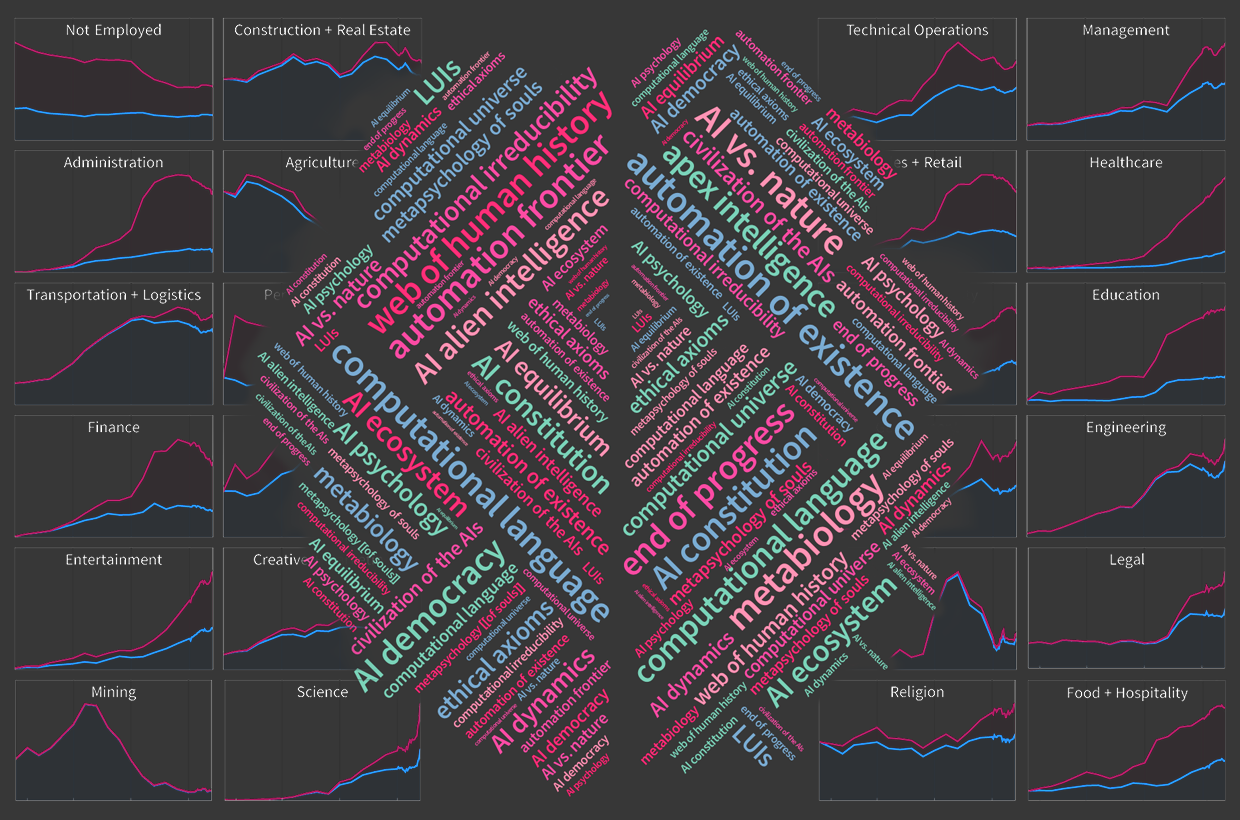Institute Output

Human Language and Machine Language
The explosion of large language models means that we are all suddenly awash in machine-generated language, spoken, written and even sung. There are many advantages to the artificial intelligence produced like this, and many disadvantages too: it remains to be seen what the eventual outcome will be. But there is one particular idea that keeps bubbling up to the surface: that AI is going to decide to kill us all. This, I suggest, is based on a misunderstanding of the nature of language.

“I Have a Theory Too”: The Challenge and Opportunity of Avocational Science
Stephen Wolfram
Most physicists term people who send such theories “crackpots”, and either discard their missives or send back derisive responses. I’ve never felt like that was the right thing to do. Somehow I’ve always felt as if there has to be a way to channel that interest and effort into something that would be constructive and fulfilling for all concerned. And maybe, just maybe, I now have at least one idea in that direction.

Identifying and Manipulating Personality Traits in LLMs Through Activation Engineering
Rumi A. Allbert, James K. Wiles
An exploration into the latent space of Large Language Models to find and steer the personality of Generative Artificial Intelligence

What’s Really Going On in Machine Learning? Some Minimal Models
Stephen Wolfram
It’s surprising how little is known about the foundations of machine learning. Yes, from an engineering point of view, an immense amount has been figured out about how to build neural nets that do all kinds of impressive and sometimes almost magical things. But at a fundamental level we still don’t really know why neural nets “work”—and we don’t have any kind of “scientific big picture” of what’s going on inside them.

Can AI Solve Science?
Stephen Wolfram
Particularly given its recent surprise successes, there’s a somewhat widespread belief that eventually AI will be able to “do everything”, or at least everything we currently do. So what about science? Over the centuries we humans have made incremental progress, gradually building up what’s now essentially the single largest intellectual edifice of our civilization. But despite all our efforts, there are still all sorts of scientific questions that remain. So can AI now come in and just solve all of them?

Generative AI Space and the Mental Imagery of Alien Minds
Stephen Wolfram
How do alien minds perceive the world? It’s an old and oft-debated question in philosophy. And it now turns out to also be a question that rises to prominence in connection with the concept of the ruliad that’s emerged from our Wolfram Physics Project.

Will AIs Take All Our Jobs and End Human History—or Not? Well, It’s Complicated…
Stephen Wolfram
Untangling this issue will be at the heart of questions about how we fit into the AI future. And in what follows we’ll see over and over again that what might at first essentially seem like practical matters of technology quickly get enmeshed with deep questions of science and philosophy.

What Is ChatGPT Doing … and Why Does It Work?
Stephen Wolfram
That ChatGPT can automatically generate something that reads even superficially like human-written text is remarkable, and unexpected. But how does it do it? And why does it work? My purpose here is to give a rough outline of what’s going on inside ChatGPT—and then to explore why it is that it can do so well in producing what we might consider to be meaningful text.

Alien Intelligence and the Concept of Technology
Stephen Wolfram
“We’re going to launch lots of tiny spacecraft into interstellar space, have them discover alien intelligence, then bring back its technology to advance human technology by a million years”.
But as I thought about it, I realized that beyond the “absurdly extreme moonshot” character of this pitch, there’s some science that I’ve done that makes it clear that it’s also fundamentally philosophically confused. The nature of the confusion is interesting, however, and untangling it will give us an opportunity to illuminate some deep features of both intelligence and technology—and in the end suggest a way to think about the long-term trajectory of the very concept of technology and its relation to our universe.
